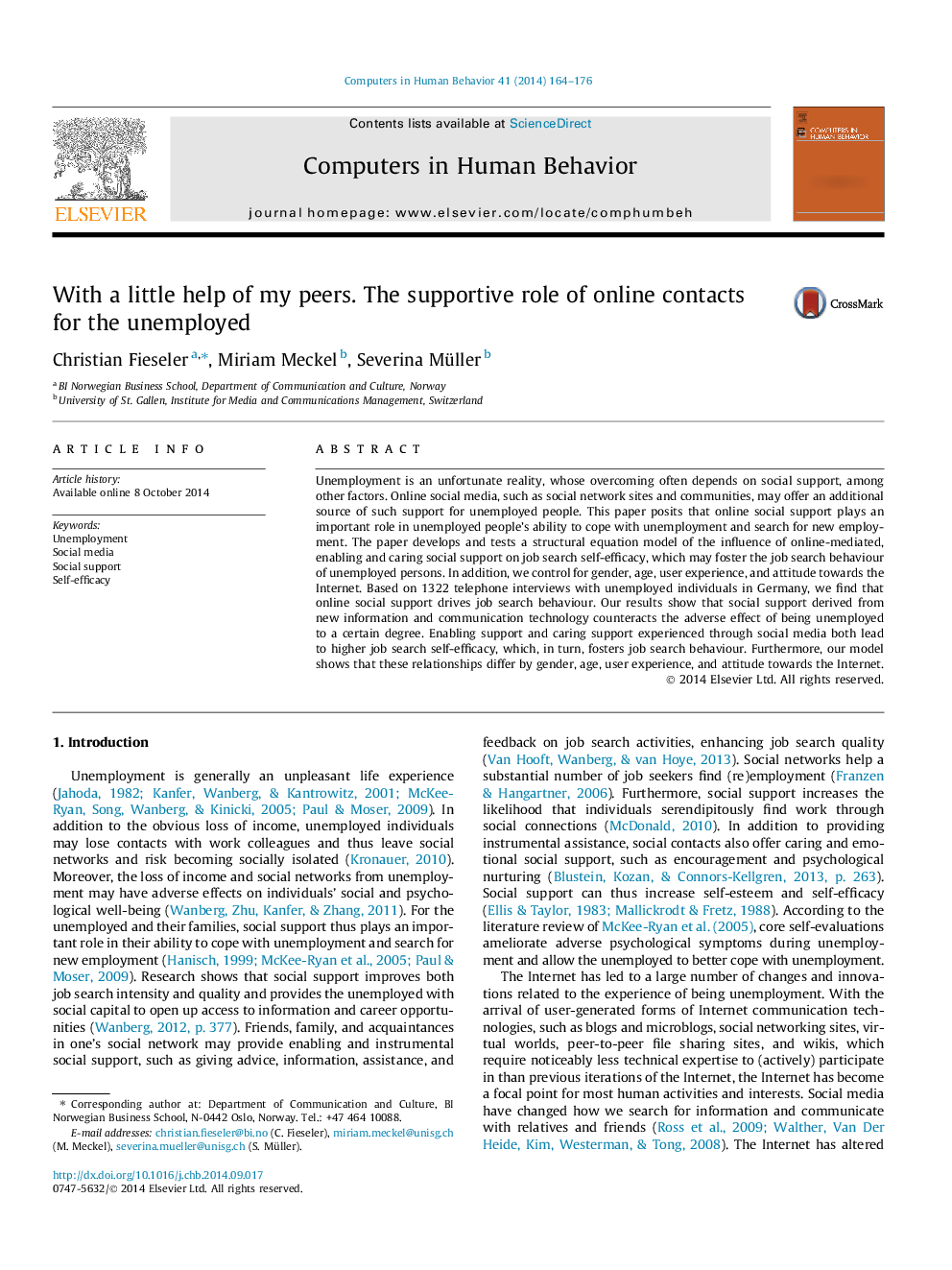| Article ID | Journal | Published Year | Pages | File Type |
|---|---|---|---|---|
| 350386 | Computers in Human Behavior | 2014 | 13 Pages |
•The Internet is used for coping purposes by the majority of the unemployed.•Support obtained through social media affect job search self-efficacy.•There are group differences in the effect on active job search behaviour.•Self-efficacy is more important for women, younger people, less experienced users.
Unemployment is an unfortunate reality, whose overcoming often depends on social support, among other factors. Online social media, such as social network sites and communities, may offer an additional source of such support for unemployed people. This paper posits that online social support plays an important role in unemployed people’s ability to cope with unemployment and search for new employment. The paper develops and tests a structural equation model of the influence of online-mediated, enabling and caring social support on job search self-efficacy, which may foster the job search behaviour of unemployed persons. In addition, we control for gender, age, user experience, and attitude towards the Internet. Based on 1322 telephone interviews with unemployed individuals in Germany, we find that online social support drives job search behaviour. Our results show that social support derived from new information and communication technology counteracts the adverse effect of being unemployed to a certain degree. Enabling support and caring support experienced through social media both lead to higher job search self-efficacy, which, in turn, fosters job search behaviour. Furthermore, our model shows that these relationships differ by gender, age, user experience, and attitude towards the Internet.
